Discover the cutting-edge world of mental healthcare with breakthrough treatments. From the immersive realms of virtual reality exposure therapy (VRET) to animal-assisted therapy, learn what psychologists are developing next.
Virtual Reality Exposure Therapy (VRET)
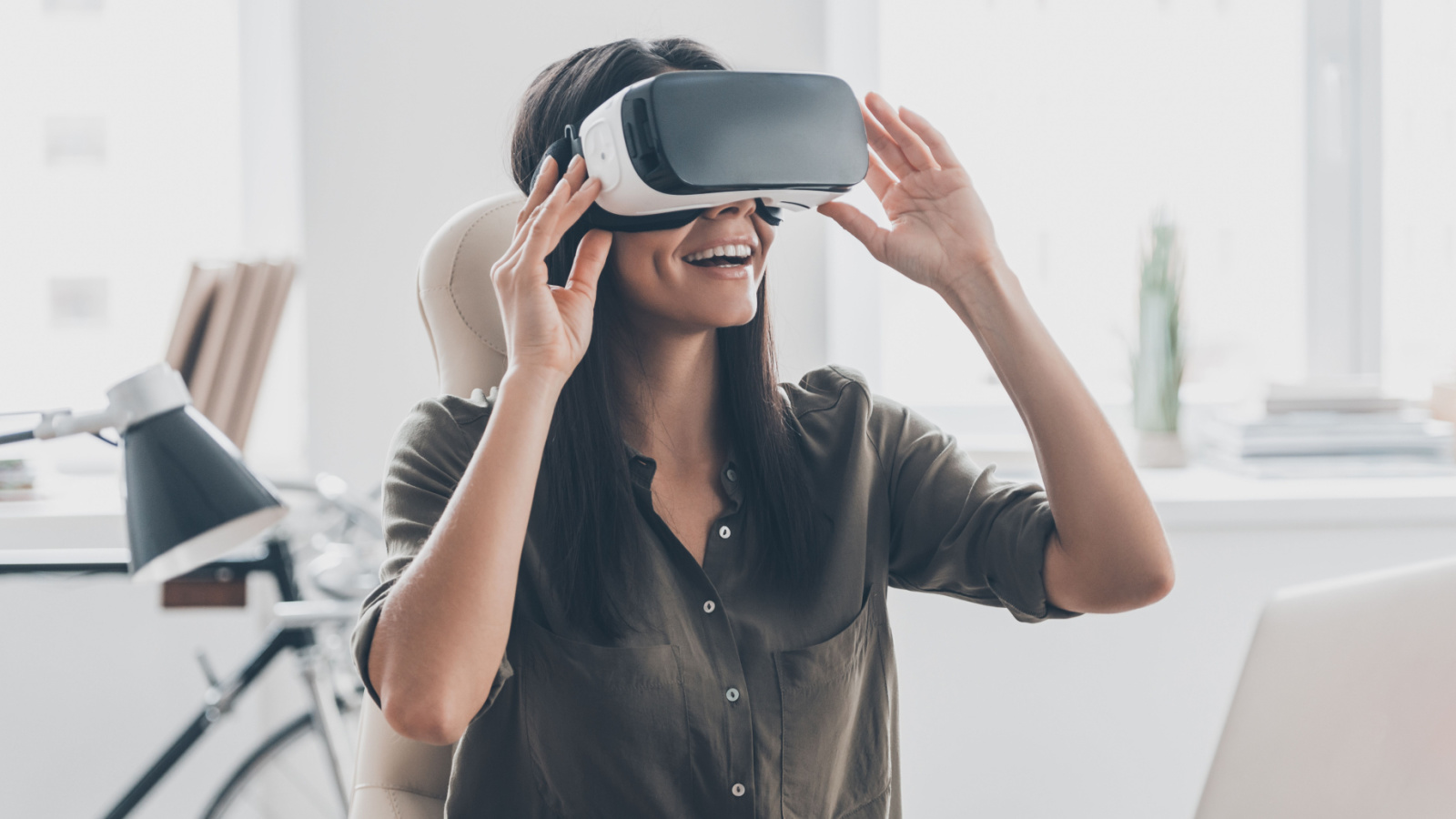
VRET transports patients to a controlled, immersive environment to face their fears. By gradually introducing stimuli, therapists can help patients learn to manage their reactions in a safe space. This innovative approach has shown promise in treating conditions like PTSD and phobias.
Personalized Medicine Through Genomics

Understanding an individual’s genetic makeup is revolutionizing mental health treatment. Personalized medicine tailors treatment plans based on genetic profiles, optimizing medication and therapy choices. Researchers are uncovering how specific genes influence responses to treatments, leading to more effective care. This method reduces the trial-and-error approach traditionally associated with psychiatric medications.
Mindfulness and Technology

Apps and wearables are bringing mindfulness practices to the masses. These tools provide guided meditation, breathing exercises, and stress management techniques. This accessible technology helps individuals incorporate relaxation and awareness into their daily lives.
Transcranial Magnetic Stimulation (TMS)
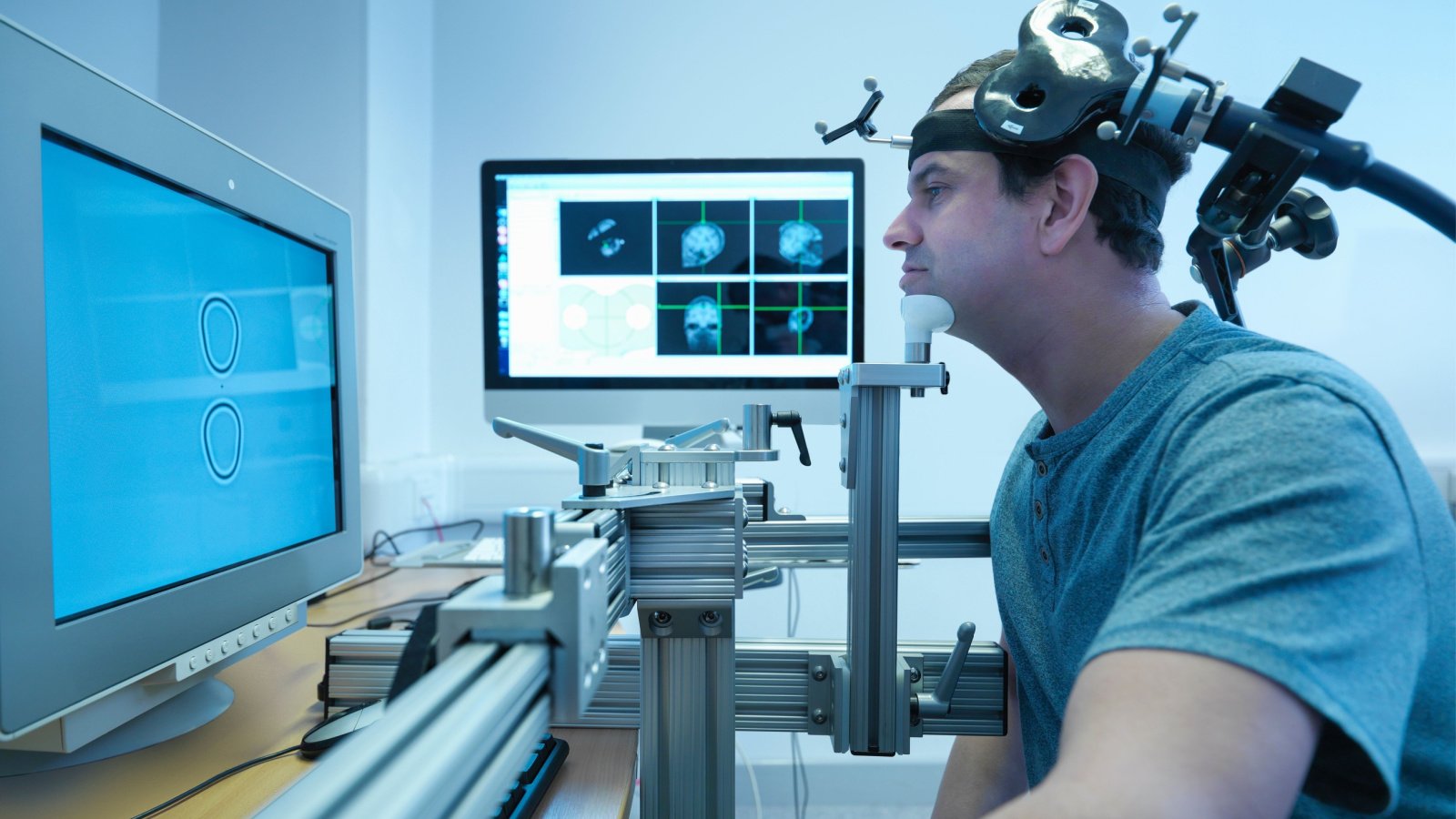
TMS is a non-invasive procedure that uses magnetic fields to stimulate nerve cells in the brain. It’s particularly effective for depression and has provided relief for many who haven’t responded to traditional treatments. Each session lasts 30-60 minutes, with patients typically undergoing multiple sessions. TMS has shown significant promise with minimal side effects.
Ketamine Infusions

Once known primarily as an anesthetic, ketamine is now a groundbreaking treatment for severe depression. It works rapidly, often bringing relief within hours or days, compared to weeks for traditional antidepressants. While it’s not for everyone, ketamine offers new hope for treatment-resistant cases.
Digital Phenotyping

Digital phenotyping involves collecting and analyzing data from smartphones and other devices to understand mental health patterns. This technology can track mood changes, social interactions, and physical activity to predict and prevent mental health crises. By understanding individual patterns, therapists can intervene more effectively. It’s a cutting-edge approach that harnesses everyday technology for better mental health.
Ecotherapy: Healing with Nature

Ecotherapy, or nature therapy, involves activities in natural settings to boost mental health. From gardening to forest bathing, these practices reduce stress, improve mood, and increase physical activity. This approach reconnects individuals with the environment, offering a holistic path to well-being.
Neuralink and Brain-Machine Interfaces

Elon Musk’s Neuralink is developing devices that will connect the human brain directly to computers. These brain-machine interfaces could potentially restore motor functions or provide new ways to treat neurological disorders. While still in the early stages, the technology promises to revolutionize treatment options. It’s a glimpse into a future where technology and the brain merge for healing.
Light Therapy for Seasonal Depression

Light therapy involves exposure to bright light that mimics natural outdoor light. It’s particularly effective for seasonal affective disorder (SAD), helping to regulate mood and sleep patterns. Users sit near a light box daily, with treatment typically lasting a few weeks.
Peer Support and Online Communities

Online platforms provide spaces for individuals to share experiences and support each other. Peer support can complement traditional therapies, offering empathy and understanding from those with similar experiences. These communities are accessible, anonymous, and supportive. While not a substitute for professional care, they provide a valuable lifeline for many.
AI-Powered Therapy Bots
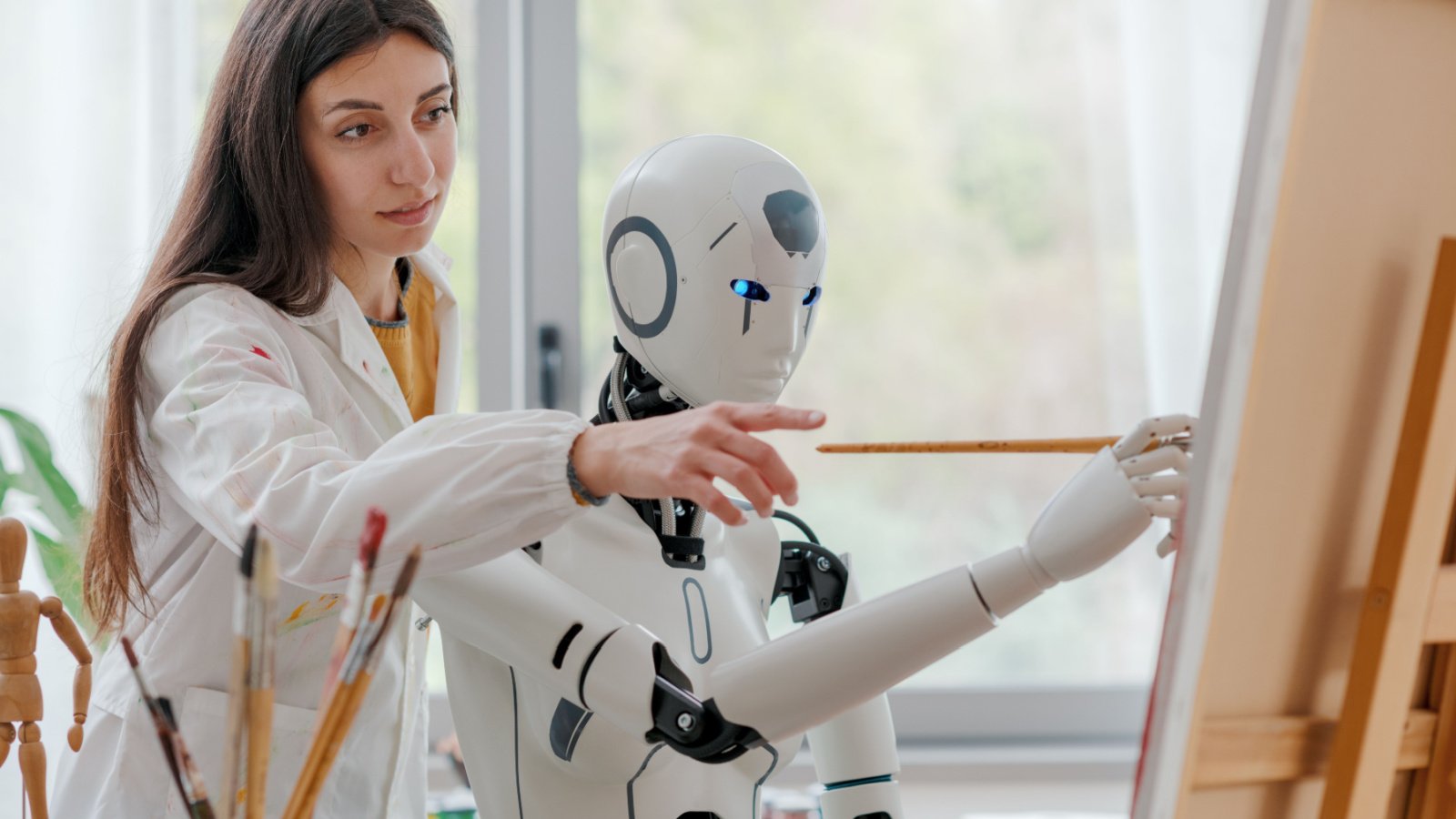
Artificial intelligence (AI) is stepping into the therapy room with bots like Woebot and Wysa. These AI companions provide conversational support, cognitive behavioral techniques, and emotional tracking. While not replacing human therapists, they offer 24/7 support and are constantly evolving.
Nutritional Psychiatry

Nutritional psychiatry explores the link between diet and mental health. By adjusting nutritional intake, individuals can potentially improve their mental well-being. This approach is holistic, considering the whole person rather than just symptoms. It’s gaining traction as more research supports the gut-brain connection.
Art Therapy

Art therapy uses creative processes to improve mental health. Whether through painting, sculpting, or drawing, it provides an expressive outlet for emotions. It’s particularly effective for those who find traditional talk therapy challenging.
Sound Healing

Sound healing involves using music, tones, and vibrations to improve mental and physical health. Instruments like singing bowls, gongs, and tuning forks induce relaxation and promote healing, offering a unique, sensory form of therapy. It’s an ancient practice finding new relevance in modern wellness.
Yoga and Mental Health

Yoga combines physical postures, breathing exercises, and meditation to enhance well-being. It’s been shown to reduce symptoms of anxiety, depression, and PTSD. This ancient practice offers a holistic approach to mental health, addressing the mind and body.
Learning to Control Your Body

Biofeedback teaches individuals to control physiological processes like heart rate and muscle tension. By monitoring these processes and learning to influence them, patients can improve conditions like anxiety and headaches. It’s a form of self-regulation therapy that empowers individuals to actively participate in their healing.
Microdosing Psychedelics

Microdosing involves taking small amounts of psychedelics like LSD or psilocybin to enhance creativity and mental well-being. While research is still in the early stages, anecdotal reports suggest benefits. It’s a controversial yet intriguing area of mental health treatment.
Bibliotherapy

Bibliotherapy involves using literature to support mental health. Individuals can explore emotions, gain insight, and find solace by reading and discussing books. Therapists often recommend specific titles that resonate with a patient’s experiences. It’s a simple yet profound tool for healing and growth.
Sleep Therapy
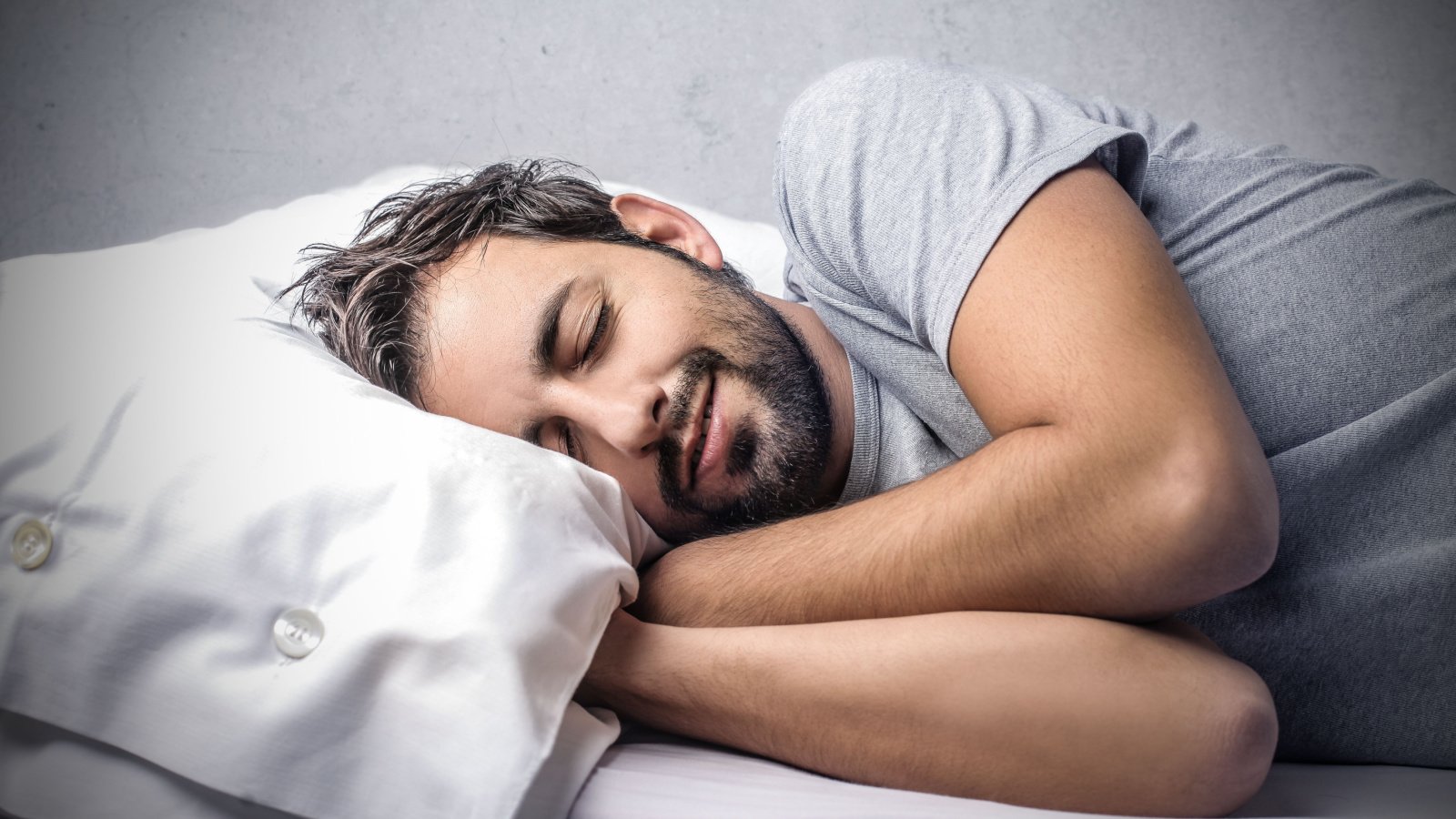
Quality sleep is crucial for mental health. Sleep therapy involves strategies to improve sleep hygiene and treat disorders like insomnia. By addressing sleep issues, individuals can see improvements in mood, cognition, and overall well-being. It’s a foundational aspect of mental health care, often overlooked but vitally important.
Community Mental Health Initiatives

Community programs provide resources, education, and support to promote mental well-being. From workshops to support groups, these initiatives foster a sense of belonging and provide valuable tools. They are vital in underserved areas, offering accessible care and breaking down stigma.
Animal-Assisted Therapy

Animal-assisted therapy involves interactions with animals to improve mental health. Whether with dogs, horses, or other animals, these sessions provide comfort, reduce stress, and encourage communication. It’s a compassionate and effective therapy, highlighting the human-animal bond.




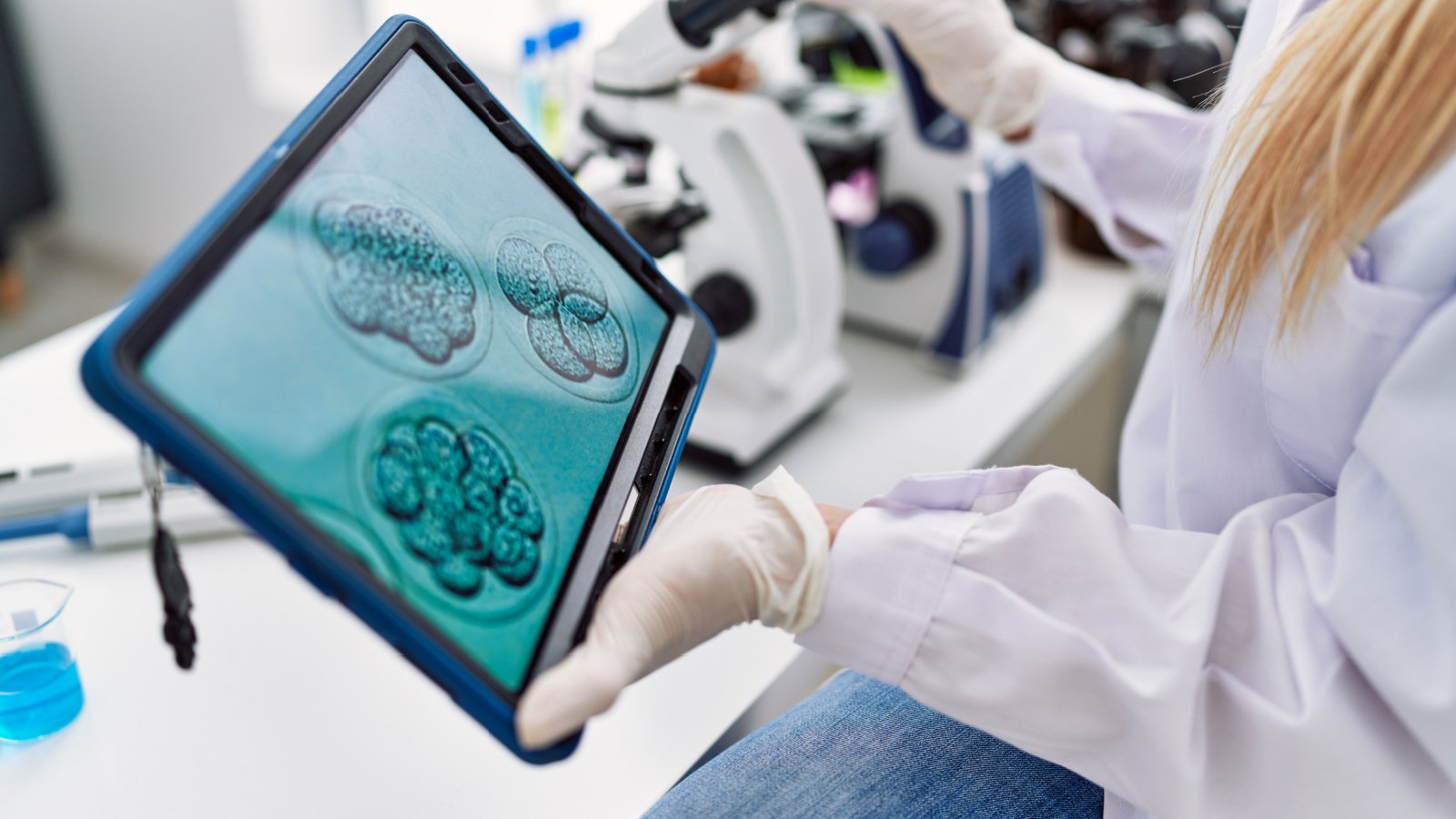




https://semaglupharm.com/# buy rybelsus
http://semaglupharm.com/# max dose rybelsus
Predni Pharm PredniPharm india buy prednisone online
Online statin drugs no doctor visit: atorvastatin chemical formula – Lipi Pharm
https://semaglupharm.com/# SemagluPharm
https://prednipharm.com/# can you buy prednisone over the counter in mexico
https://semaglupharm.shop/# Semaglu Pharm
PredniPharm: PredniPharm – PredniPharm
Lipi Pharm Generic Lipitor fast delivery Lipi Pharm
https://semaglupharm.com/# Rybelsus 3mg 7mg 14mg
Lipi Pharm: Lipi Pharm – Cheap Lipitor 10mg / 20mg / 40mg
Safe online pharmacy for Crestor rosuvastatin and levothyroxine ezetimibe with rosuvastatin
https://prednipharm.shop/# prednisone 20mg online pharmacy
No prescription diabetes meds online: SemagluPharm – SemagluPharm
LipiPharm FDA-approved generic statins online atorvastatin considerations
https://semaglupharm.com/# what happens if semaglutide is not refrigerated
crestor 40 mg side effects: Online statin therapy without RX – No doctor visit required statins
Crestor Pharm Generic Crestor for high cholesterol Crestor Pharm
http://semaglupharm.com/# SemagluPharm
Over-the-counter Crestor USA: CrestorPharm – Rosuvastatin tablets without doctor approval
https://semaglupharm.com/# Semaglutide tablets without prescription
https://semaglupharm.shop/# Rybelsus side effects and dosage
CrestorPharm: does rosuvastatin make you sleepy – CrestorPharm
https://semaglupharm.com/# is semaglutide or tirzepatide better
kГёb lipitor what is the best time to take lipitor LipiPharm
FDA-approved Rybelsus alternative: rybelsus 3mg price – SemagluPharm
https://semaglupharm.com/# Semaglu Pharm
Crestor Pharm: CrestorPharm – Crestor 10mg / 20mg / 40mg online
http://semaglupharm.com/# Semaglutide tablets without prescription
Predni Pharm prednisone tablets india Predni Pharm
CrestorPharm: Crestor Pharm – Crestor Pharm
http://semaglupharm.com/# SemagluPharm
Lipi Pharm lipitor and xanax USA-based pharmacy Lipitor delivery
https://semaglupharm.shop/# Rybelsus online pharmacy reviews
metformin and semaglutide: difference between semaglutide and ozempic – what are side effects of rybelsus
https://semaglupharm.com/# rybelsus glp-1
Predni Pharm prednisone online pharmacy price for 15 prednisone
http://semaglupharm.com/# rybelsus costco
mexican rx online: Meds From Mexico – Meds From Mexico
http://medsfrommexico.com/# mexican border pharmacies shipping to usa
certified canadian international pharmacy: canadapharmacyonline – buy prescription drugs from canada cheap
http://canadapharmglobal.com/# trusted canadian pharmacy
canadian pharmacy online canadian pharmacy prices canadian pharmacy 365
Meds From Mexico: mexican border pharmacies shipping to usa – medicine in mexico pharmacies
https://canadapharmglobal.com/# canadian pharmacies compare
canadian pharmacy oxycodone: canadian discount pharmacy – best canadian online pharmacy
Meds From Mexico pharmacies in mexico that ship to usa mexican border pharmacies shipping to usa
indian pharmacy online: India Pharm Global – top online pharmacy india
http://medsfrommexico.com/# mexican rx online
https://canadapharmglobal.shop/# canada pharmacy 24h
buying prescription drugs in mexico: Meds From Mexico – Meds From Mexico
world pharmacy india Online medicine home delivery India Pharm Global
https://canadapharmglobal.shop/# safe canadian pharmacies
canadian pharmacy checker: Canada Pharm Global – canadian pharmacy meds
India Pharm Global: India Pharm Global – India Pharm Global
https://canadapharmglobal.shop/# canadian pharmacy tampa
India Pharm Global: top 10 pharmacies in india – India Pharm Global
reputable mexican pharmacies online buying from online mexican pharmacy Meds From Mexico
https://medsfrommexico.com/# Meds From Mexico
http://medsfrommexico.com/# Meds From Mexico
canadian pharmacy world reviews: Canada Pharm Global – canadian discount pharmacy
canadian pharmacy online legitimate canadian pharmacies online pharmacy canada
https://indiapharmglobal.com/# India Pharm Global
India Pharm Global: India Pharm Global – Online medicine home delivery
canadian pharmacy victoza canadian pharmacies compare vipps canadian pharmacy
http://medsfrommexico.com/# Meds From Mexico
https://medsfrommexico.shop/# buying prescription drugs in mexico
canada drugs reviews: online pharmacy canada – canadian drug
Meds From Mexico mexico pharmacies prescription drugs п»їbest mexican online pharmacies
https://canadapharmglobal.com/# the canadian drugstore
canadian drug pharmacy: Canada Pharm Global – cheapest pharmacy canada
India Pharm Global India Pharm Global India Pharm Global
http://medsfrommexico.com/# buying from online mexican pharmacy
http://indiapharmglobal.com/# India Pharm Global
dr max opinioni salute farma milano telefono EFarmaciaIt
contractubex pomata: amoxicillina compresse – EFarmaciaIt
https://svenskapharma.com/# hostdämpande medicin receptfritt
Svenska Pharma apotek djurrecept graviditetstest snabb leverans
algix compresse prezzo: artrosilene fiale opinioni – farmacia veterinaria bari
http://papafarma.com/# Papa Farma
https://raskapotek.com/# Rask Apotek
EFarmaciaIt: numero verde klarna – EFarmaciaIt
precio cariban producto de farmacia Papa Farma
robilas recensioni: EFarmaciaIt – EFarmaciaIt
https://papafarma.com/# Papa Farma
http://efarmaciait.com/# EFarmaciaIt
https://svenskapharma.com/# se recept online
elektrisk neglefil apotek Rask Apotek a-vitamin syre krem apotek
dagkrem apotek: e-vitamin olje apotek – Rask Apotek
Papa Farma: Papa Farma – Papa Farma
https://svenskapharma.com/# köpa sömntabletter på nätet
köp glasögon online billigaste kaffekapslar Svenska Pharma
http://svenskapharma.com/# Svenska Pharma
https://svenskapharma.com/# Svenska Pharma
tГёymunnbind apotek: influensavaksine apotek 2022 – linsevГ¦ske apotek
https://papafarma.com/# Papa Farma
Rask Apotek Rask Apotek Rask Apotek
Svenska Pharma: Svenska Pharma – vГ¤tskeersГ¤ttning bГ¤st i test
https://raskapotek.shop/# metningsmåler apotek
http://svenskapharma.com/# Svenska Pharma
EFarmaciaIt EFarmaciaIt EFarmaciaIt
EFarmaciaIt: EFarmaciaIt – EFarmaciaIt
https://efarmaciait.com/# EFarmaciaIt
bästa graviditetstest graviditetstest apotek Svenska Pharma
farmacie online con ricetta: EFarmaciaIt – comprare farmaci in svizzera con ricetta italiana
https://efarmaciait.com/# cialis online recensioni
https://raskapotek.shop/# kinesio tape apotek
Papa Farma cbd vigo amazon mallorca bestellen
Rask Apotek: Rask Apotek – proteinpulver apotek
http://raskapotek.com/# ansiktsmaske apotek
farmacias a la venta Papa Farma farma cbd
http://papafarma.com/# syracerin solucion
amningsbh med bygel: Svenska Pharma – Svenska Pharma
https://svenskapharma.shop/# Svenska Pharma
selvtest corona apotek Гёrerenser spiral apotek intimvask best i test
xenical indian pharmacy indian pharmacy paypal PharmaConnectUSA
https://pharmajetzt.shop/# PharmaJetzt
https://medicijnpunt.com/# apotgeek
Pharma Confiance: Pharma Confiance – Pharma Confiance
PharmaConnectUSA viagra online indian pharmacy Pharma Connect USA
Pharma Confiance: viagra sans ordonnance 24h amazon – peut on prendre 2 tadalafil 20 mg
https://pharmaconfiance.com/# tadalafil 2 5 mg avis
Pharma Connect USA: online pharmacy australia – Pharma Connect USA
Medicijn Punt Medicijn Punt MedicijnPunt
https://pharmajetzt.shop/# apoteke online
https://pharmajetzt.com/# Pharma Jetzt
afbeelding medicijnen: apteka den haag – apotheek nederland
snel medicijnen bestellen: MedicijnPunt – Medicijn Punt
farmacia online internetapotheke selbitz die gГјnstigste online apotheke
https://pharmaconfiance.com/# crème solaire chat pharmacie
legitimate online pharmacies: Pharma Connect USA – pfizer viagra online pharmacy
PharmaConnectUSA: ambien cr online pharmacy – Pharma Connect USA
http://pharmaconfiance.com/# gd pharma
https://pharmaconfiance.shop/# amoxicilline 500 posologie adulte
PharmaJetzt versand apotheken apotheken
https://pharmaconfiance.shop/# Pharma Confiance
Pharma Connect USA: viagra mexico pharmacy – PharmaConnectUSA
pharmacie de garde Г grasse Pharma Confiance Pharma Confiance
arznei gГјnstig: Pharma Jetzt – apotheke sofort lieferung
Pharma Confiance homГ©opathie bain de bretagne chondrosulf pas cher
https://pharmaconfiance.com/# combien coГ»te une boГ®te de viagra
http://pharmajetzt.com/# online apotheken deutschland
uk pharmacy no prescription: eu pharmacy online – Shallaki
Pharma Jetzt kapsel apotheke internet apotheke versandkostenfrei
https://medicijnpunt.com/# medicijn
Pharma Confiance: Pharma Confiance – tadalafil medicament
rx pharmacy no prescription Viagra with Dapoxetine rxpharmacycoupons
http://pharmaconnectusa.com/# Pharma Connect USA
https://pharmaconfiance.shop/# cialis 5 mg avis
Medicijn Punt: medicijnen apotheek – Medicijn Punt
Pharma Jetzt PharmaJetzt PharmaJetzt
https://pharmajetzt.shop/# pharmacy online
Medicijn Punt: apotheke – medicijn bestellen apotheek
Medicijn Punt: MedicijnPunt – pharma online
Pharma Confiance Pharma Confiance Pharma Confiance
https://pharmajetzt.shop/# medikamente online bestellen mit rezept
https://pharmaconnectusa.com/# Pharma Connect USA
pille kaufen apotheke: Pharma Jetzt – PharmaJetzt
tebonin 240 120 stГјck preisvergleich Pharma Jetzt Pharma Jetzt
https://pharmaconfiance.shop/# medicament livraison
https://pharmaconfiance.shop/# Pharma Confiance
PharmaJetzt Pharma Jetzt aptheke
https://pharmaconfiance.com/# Pharma Confiance
https://pharmaconnectusa.shop/# PharmaConnectUSA
PharmaJetzt: Pharma Jetzt – Pharma Jetzt
PharmaConnectUSA mexican pharmacy prednisone Pharma Connect USA
https://pharmajetzt.shop/# Pharma Jetzt
PharmaJetzt: tebonin 240 120 stГјck preisvergleich – aphotek
http://pharmaconfiance.com/# diffГ©rence entre pharmacie et parapharmacie
http://medicijnpunt.com/# MedicijnPunt
Pharma Connect USA: Pharma Connect USA – diovan online pharmacy
http://pharmaconnectusa.com/# PharmaConnectUSA
Pharma Jetzt: PharmaJetzt – mediherz versandapotheke online shop bestellen
http://medicijnpunt.com/# Medicijn Punt
https://pharmajetzt.shop/# online apotek
Pharma Jetzt: apotheke ohne versandkosten – online apothele
https://pharmaconfiance.com/# chat a donner caen
pharmacie route de toulouse: Pharma Confiance – pharmacie viagra prix
https://pharmaconnectusa.com/# misoprostol online pharmacy
https://medicijnpunt.com/# Medicijn Punt
apo versandapotheke: internet apotheken – Pharma Jetzt
https://pharmaconfiance.shop/# pharmagarde 59
https://pharmaconnectusa.shop/# remote consultation online pharmacy
Medicijn Punt: MedicijnPunt – MedicijnPunt
http://medicijnpunt.com/# MedicijnPunt
https://pharmajetzt.shop/# PharmaJetzt
Pharma Confiance: meilleur site parapharmacie en ligne – Pharma Confiance
Pharma Confiance: pharmacie pas cher – Pharma Confiance
http://pharmajetzt.com/# PharmaJetzt
Pharma Confiance: achat viagra homme – mounjaro achat en ligne
https://pharmaconfiance.com/# Pharma Confiance
online apotheken: MedicijnPunt – Medicijn Punt
https://medicijnpunt.com/# medicijnen zonder recept
Pharma Connect USA: PharmaConnectUSA – people’s pharmacy zyrtec
online apotheek zonder recept ervaringen Medicijn Punt Medicijn Punt
https://pharmaconnectusa.shop/# target pharmacy refill online
charles raines pharmacy winston-salem nc early drug store: cialis certified online pharmacy – Pharma Connect USA
http://medicijnpunt.com/# dokter online medicijnen bestellen
de apotheek: recept online – MedicijnPunt
http://medicijnpunt.com/# MedicijnPunt
https://pharmaconfiance.shop/# pilule slinda avis
MedicijnPunt: pharma apotheek – digitale apotheek
internet apotheke bad steben Pharma Jetzt Pharma Jetzt
http://pharmaconfiance.com/# Pharma Confiance
online apoteke: PharmaJetzt – luitpold apotheke online-shop versandapotheke
Levitra with Dapoxetine tamiflu pharmacy coupons Pharma Connect USA
https://pharmajetzt.com/# aphotek
low cost online pharmacy: PharmaConnectUSA – ambien online pharmacy review
https://pharmajetzt.shop/# online apotheke schnelle lieferung
Pharma Jetzt: Pharma Jetzt – Pharma Jetzt
Pharma Confiance: ddg taille – Pharma Confiance
PharmaJetzt PharmaJetzt Pharma Jetzt
http://pharmaconfiance.com/# Pharma Confiance
https://pharmaconfiance.com/# Pharma Confiance
https://pharmaconnectusa.shop/# PharmaConnectUSA
MedicijnPunt apteka nl online pil online bestellen
apotheek on line: apohteek – MedicijnPunt
http://pharmaconnectusa.com/# depakote er online pharmacy
medicijnen op recept MedicijnPunt de online apotheek
http://medicijnpunt.com/# MedicijnPunt
PharmaJetzt: medikament bestellen – online pharmacy germany
https://pharmajetzt.shop/# Pharma Jetzt
pharmacy degree online: PharmaConnectUSA – pharmacy assistant certification online
PharmaConnectUSA search rx pharmacy discount card cialis viagra pharmacy
reputable indian online pharmacy IndiMeds Direct IndiMeds Direct
https://indimedsdirect.shop/# reputable indian pharmacies
http://canrxdirect.com/# best canadian pharmacy online
real canadian pharmacy: northwest canadian pharmacy – my canadian pharmacy
Online medicine home delivery IndiMeds Direct IndiMeds Direct
https://canrxdirect.com/# pharmacy com canada
canadian pharmacy drugs online: canadian drug – canada pharmacy online legit
top 10 online pharmacy in india india pharmacy IndiMeds Direct
https://tijuanameds.shop/# buying prescription drugs in mexico online
https://tijuanameds.shop/# mexico pharmacies prescription drugs
mexican rx online: TijuanaMeds – medicine in mexico pharmacies
pharmacy com canada canada pharmacy online legit canada rx pharmacy
https://canrxdirect.com/# buy canadian drugs